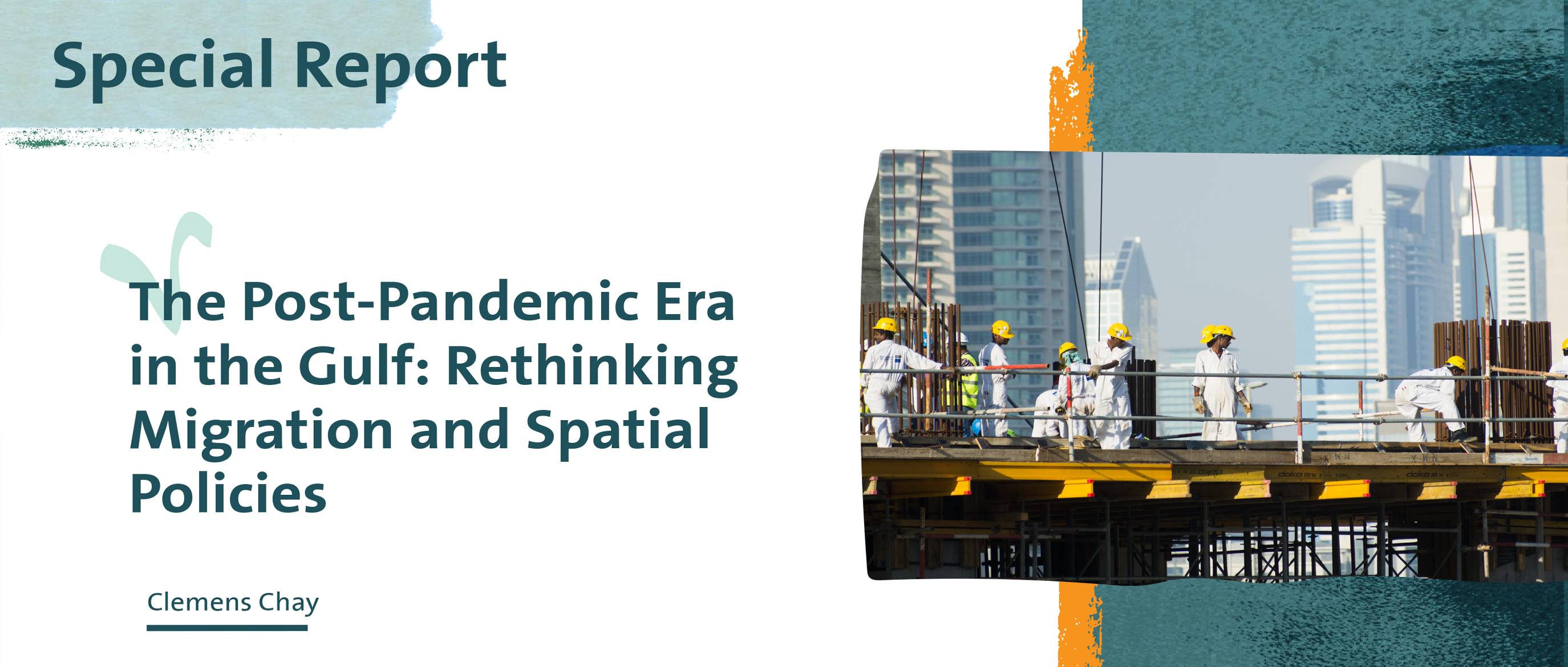The Post-Pandemic Era in the Gulf: Rethinking Migration and Spatial Policies
The coronavirus pandemic has magnified the politics of exclusion in the Arab states of the Gulf, placing a huge strain on their institutional capacities. Amidst these uncertainties, Gulf authorities moved to repatriate a large segment of foreign labor. The bleak economic outlook will compel Gulf nationals into lower-paying private sector jobs, but there remains a mismatch in skillsets and wages. This paper argues that the post-pandemic era presents windows of opportunity to improve existing migration and spatial policies, whether by tapping into specific foreign expertise to cultivate local human capital, or improving the kafala (sponsorship) system that processes the inflow of migrants into the Gulf. While an overhaul of existing policies is impractical, genuine adjustments are overdue, instead of cosmetic reforms aimed at paying lip service to critics. Beyond structural flaws, this study reveals a wider systemic discrimination against migrant labor, owing to citizenship policies and urban planning. Although Western scholarship has largely focused on the politics of spatial exclusion, as a result of residential zoning policies, this paper re-evaluates the use of public space, which signals a crying need to shift away from consumerist spaces of contrived diversity, and toward an integrative approach that embraces social diversity.

